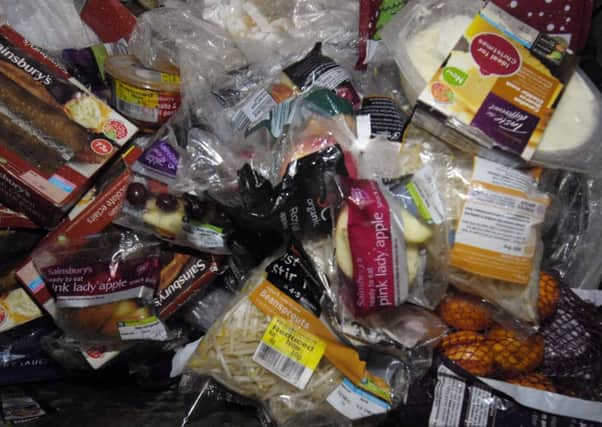Food industry develops taste for sustainability


The Scottish food and drink manufacturing industry is made up of almost 1,200 companies, with a staggering £9 billion turnover in 2012, and boasting exports worth over £5.4bn. Match the scale of the industry with the upward trend of increasing material and energy costs, and it becomes more apparent than ever that resource efficiency is taking centre stage.
Improvements in resource efficiency need to be achieved alongside maintaining economic competitiveness and delivering sustainable growth – the key to true sustainability. To help achieve this, the voice of the food and drink industry in Scotland, the Scottish Food and Drink Federation (SFDF), is working with business partners and food and drink manufacturers in the Scottish Industry Advisory Group (IAG) on resource efficiency.
Advertisement
Hide AdAdvertisement
Hide AdThe IAG was formed in 2013 between SFDF, Zero Waste Scotland’s Resource Efficient Scotland (RES) – a programme to help the public and private sectors save money by using resources more efficiently – and Interface Food & Drink, which promotes partnerships between business and academics. The group is made up of over 20 leading food and drink companies and acts as a forum to identify and prioritise the most important resource efficiency issues. Members volunteer to undertake projects, creating beacons of best practice through case studies and helping shape communication within the sector to ensure the maximum possible impact.
An example of how this works was the collaboration between a number of businesses to tackle the need to reduce waste. Gordon and MacPhail, Mackies, Macphie of Glenbervie and Dean’s of Huntly took part in a joint trial to recycle plastics marginally contaminated with food residues and which would normally go to landfill. The result was a reduction in the amount of waste sent to landfill which, in turn, has reduced their company waste disposal costs.
Thanks to this success, eight companies in Grampian are now taking part in a “milk-round” style collection for a similar waste stream where the plastics are sent to be recycled. An online guide to collaborative recycling of plastics has been produced by RES to help companies set up similar schemes.
The IAG work builds upon the Food and Drink Federation (FDF)’s Five-fold Environmental Ambition to deliver quantifiable improvements in resource efficiency at the manufacturing stage including reductions in carbon emissions, water, food and packaging waste and transport.
Published at the end of last year, FDF’s latest report shows that members have achieved significant reductions across all of these areas including a 32 per cent reduction in CO² emissions compared to the 1990 baseline, and the reduction of food and packaging sent to landfill to just 3 per cent of total waste.
These figures demonstrate the innovative steps being taken forward by companies to deliver real improvements in resource efficiency.
Recently, leading haggis producer Macsween of Edinburgh worked with RES to convert plastic waste used to transport raw meat ingredients into sustainable energy and has now eliminated its use of landfill and now uses pioneering technologies to create Refuse Derived Fuel which is made by shredding and dehydrating the solid waste which is then used to produce sustainable energy.
FDF members are also reducing waste elsewhere in the supply chain. For example, FDF is a founding partner of the Waste & Resources Action Programme (WRAP) “Fresher for Longer” part of the Love Food Hate Waste campaign. This initiative aims to demonstrate to consumers how better use of packaging – and the information it carries – can help them dramatically reduce the amount of food they throw away, saving them money and helping the environment.
Advertisement
Hide AdAdvertisement
Hide AdAt the end of 2012, FDF published Sustainable Sourcing: Five Steps Towards Managing Supply Chain Risk. This guide sets out a step-by-step process to help businesses identify, prioritise and manage upstream supply chain risks as part of a more strategic approach towards supply chain sustainability.
SFDF and RES are in the process of developing a joint project to support the practical implementation of the Sustainable Sourcing Guide, helping Scottish food and drink businesses identify savings through energy, material and water efficiency. Dean’s of Huntly and Innovate Foods are taking part in this.
Looking ahead, a more extensive web-based resource in the form of an online tool will be published this year by WRAP, with support from FDF, to help food and drink businesses assess raw material risks and opportunities. This will be expanded to encompass a wide range of raw materials and sourcing locations.
SFDF is dedicated to working with industry and business partners to protect and enhance the environment and work towards sustainable growth in order to help achieve a better quality of life for everyone – now and for the next generations to come.
• Mary Lawton is policy and industry liaison manager, Scottish Food and Drink Federation www.sfdf.org.uk
SEE ALSO